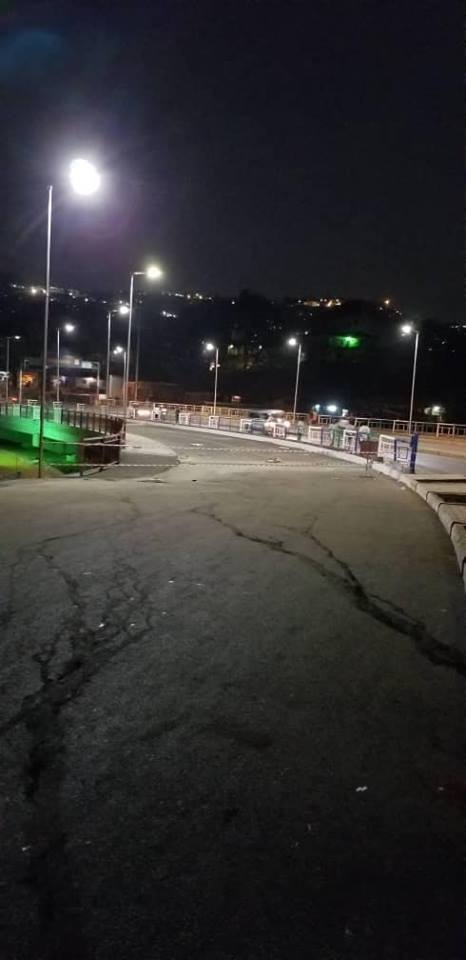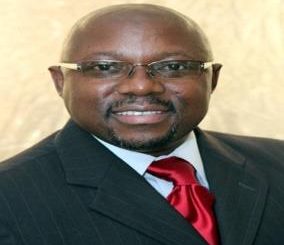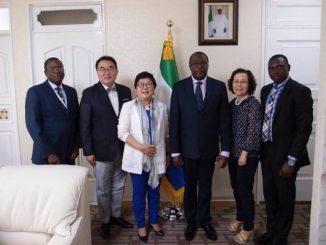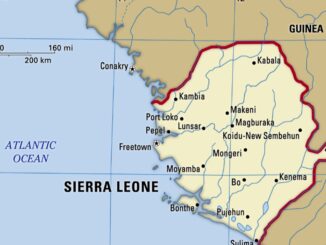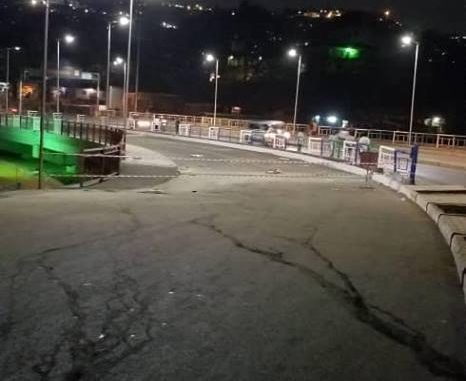
Titus Boye-Thompson
Sierra Leone at 58 years of Independence should be a cause for celebration but this year’s national day has been ruined by bungling state officials and a divisive politics that is underpinned by tribal conflicts and discord. The rationale for a marking of the country’s national day is well established but the creeping segregation of marking events of such national importance as if they are partisan or otherwise constrained is providing a recipe for division and a tribal tenacity that erodes sovereignty and the process for national cohesion.
The decision by Government to relinquish responsibility for national coordination of how the day is marked was the first in a series of uncomfortable decisions. To have come to the understanding that government should not undertake a public programme of events to mark this day in the national character is of such grave dereliction that one wonders whether there is an absence of continuity or a dearth of procedures on what protocols have to be observed in such cases.
The excuse of austerity or financial prudence is inexcusable because like any child, there is nothing short of being let down completely when a parent fails to mark its holiday. The nation is owed that recognition and it is such occasions, important as they are in civics, that ought to embed in the minds of our young, the spirit of sovereignty and the notion of nationalism. The absence of such grand designs at delivering ‘national cohesion’ as a predominant rationale for social development is tantamount to negligence and a failure of responsibility. What we hear in its stead are the narratives of divisive politics, the concepts of ‘paopa’ and ‘mu gobermenti loh.’ Phrases that allude to tribalism and regional supremacy.
The botched attempt at renaming the ITA Wallace Johnson Bridge at Juba is another sad example of governmental failure and illegitimacy. Civilized nations have a guide or established procedures for naming streets, bridges and Highways. The naming of such public architecture and for that matter, places of historical and national interest usually rests with a local or Municipal authority. In the case of Freetown, laws exist that mandates that responsibility to the Freetown City Council. To have bypassed that authority and proclaim an extension to an existing crossing as the “Sengbeh Pieh” Bridge is wrong and misplaced.
In the first place, the absence of a direct historical attachment or relationship between Segbeh Pieh and Lumley / Juba axis is a direct contradiction i terms when one considers how places or artifacts are named after historical personalities. The fact that such a renaming of the bridge has tribal and local import is also disregarded, given that the renaming of the Bridge has been done as a replacement of another more relevant historical character, well grounded in the locality and the political history of Freetown and beyond. There is no argument that the life story of I T A Wallace Johnson is iconic and his stand against colonialism ad the enjoining of sovereignty in this nation state culminated in the development of what we now call Sierra Leone.
The fact that I T A Wallace Johnson was a Creole is secondary to his contribution to the independence struggle that Sierra Leone faced, his contribution to the development of journalism ad his prominence in raising awareness of pan Africanism alongside other great patriots like Patrice Lumumba, Kwame Nkruma, Julius Nyrere and other great Africans. All told, this is one Sierra Leonean who having defined the history of his country should not be subjected to such crass treatment especially at a time like this when the country is supposed to be celebrating the very independence he had worked tirelessly for.
While opposition to this renaming of the Wallace Johnson Bridge is not to be considered as a slur on the character of Sengbeh Pieh, himself another notable ex-slave who fought hard to redeem himself from forced labour and the wicker terrors of slavery, it may have been a better decision to have erected a completely new edifice in his name, even a bridge between the Island of Bonthe and the Sierra Leone mainland would have been a better idea, to mark his struggle after being taken from Bonthe as a slave but came back a free man who in fact went back to the Provinces instead of settling in the colony, to preach Christianity to the people of his homeland.
The clarification on this bridge renaming that was provided by the Freetown City Council has made it clear that the decision was made without their tacit approval and concord. In the event, it is highly likely that this renaming should remain to be valid and that a retraction be demanded from Central Government. It will be a good thing for those who have impugned our systems of governance in the Municipality, to accept their error and cause this misnaming to be reversed.
On the matter of the Independence celebrations, it is highly insincere for Government to determine that there are no resources to mark the day even on a low key but to have been finding money to travel abroad at such frequency, raking up such sky miles and a carbon footprint disproportionate to the nation’s capacity is ridiculous.
This government should learn to take responsibility for accountability and governance, do the right thing by the people and stop the spiteful and divisive propaganda tactics that should really be the preserve of the opposition. There is concern that respect for our traditions, which should guide actions, is loudly silent. In the event, we are unable to build networks and a sovereignty that brings us closer together as one nation. In its place, the government’s strategy of ethnic transplants and tribal substitution risks a situation wherein they continue to put one people above the nation that we have. This should be a nation for all, not a tribal hegemony. This should be a celebration of Independence and the march towards a nation state, this land that we love, our Sierra Leone!

